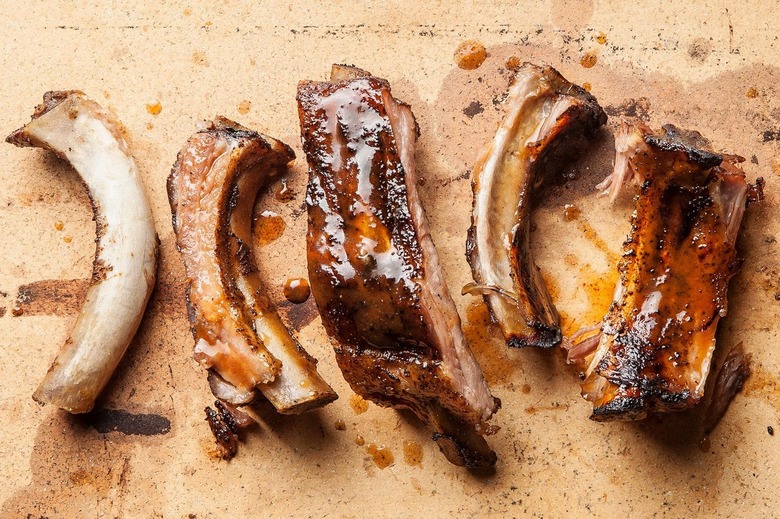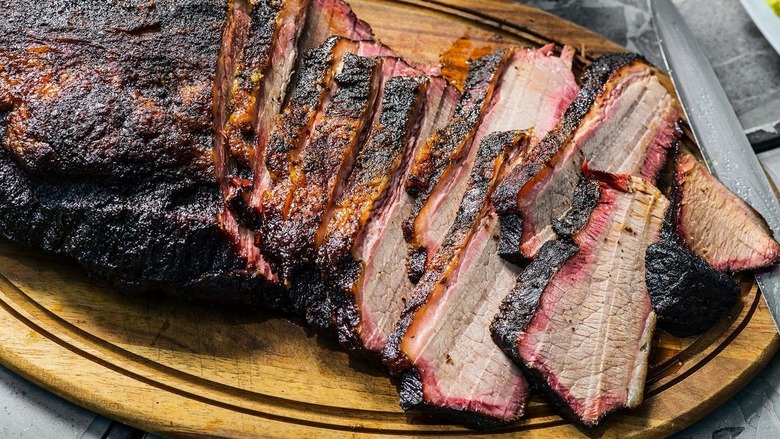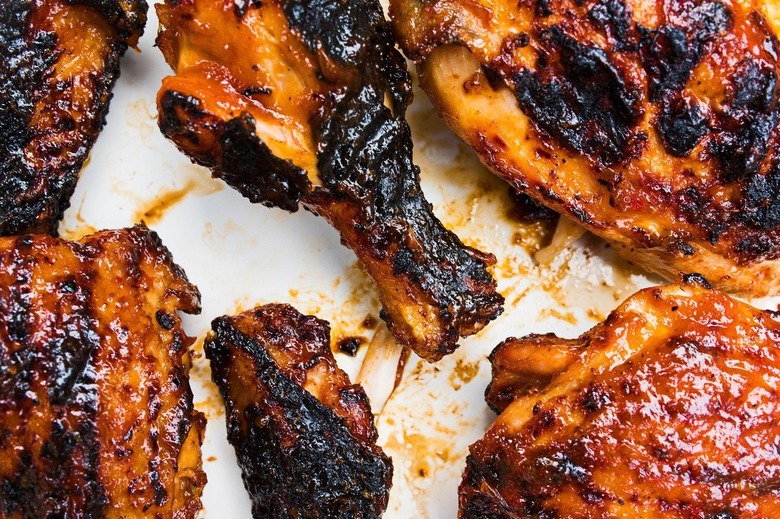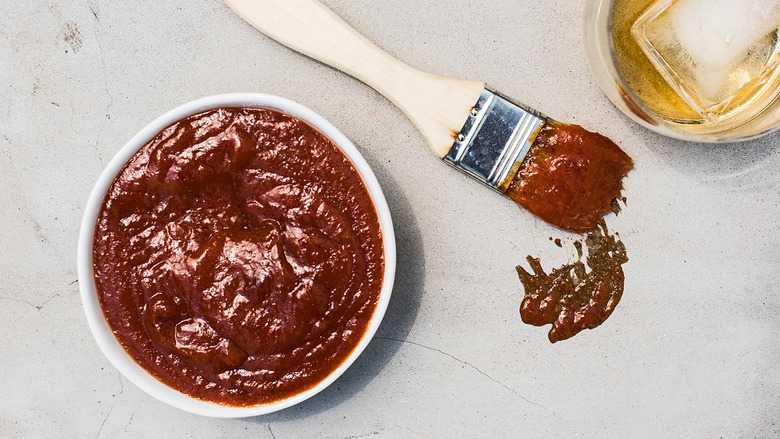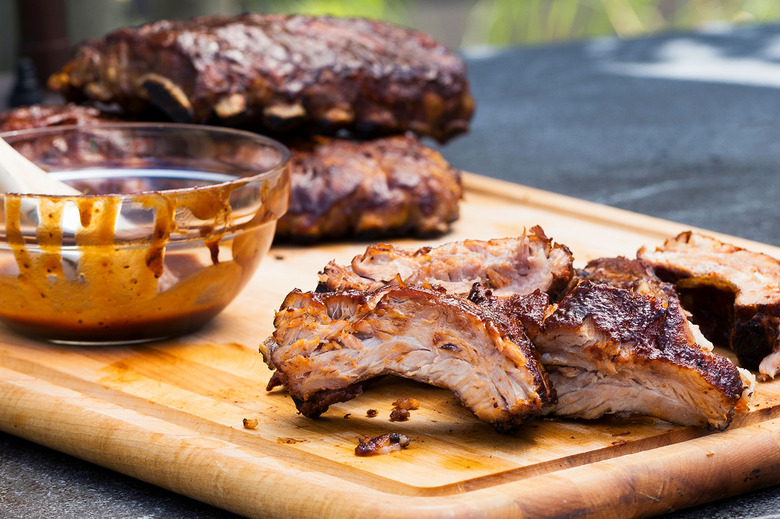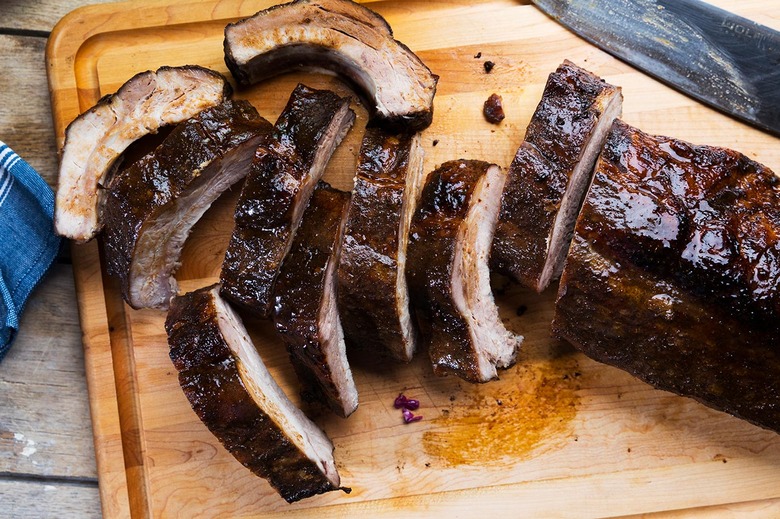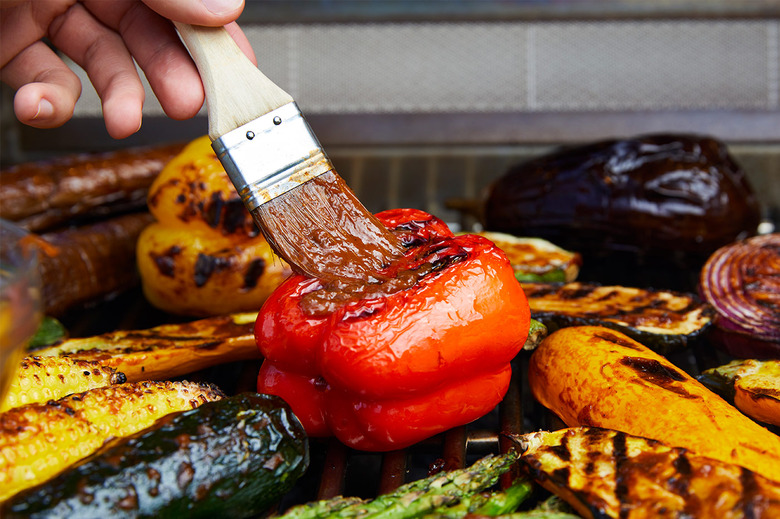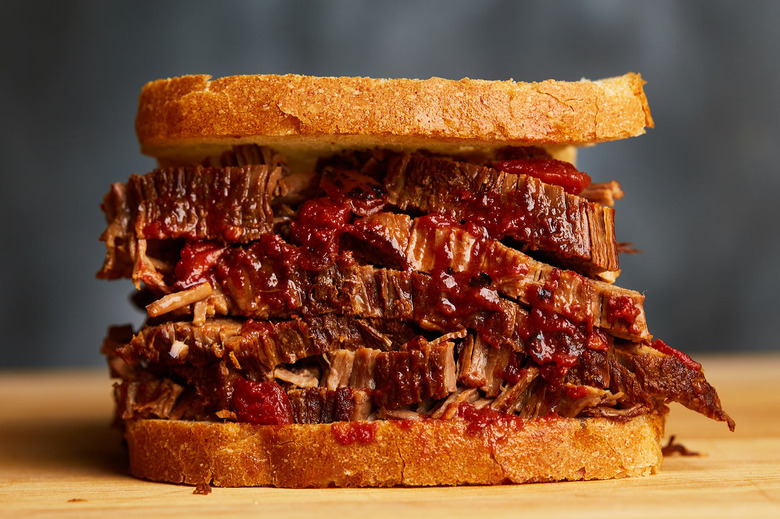American Barbecue In Europe: London, Paris
Some pitmasters have beef though
In Bangkok, gargantuan tomahawks are all the rage right now. In Paris, a slew of restaurants is serving baby back ribs, pork belly and brisket. Meanwhile in London, the recently opened Texas Joe's boasts a smoker that can tenderize 500 pounds of meat at a time. Yes, it's official: American barbecue has reached international cult status.
Barbecue is a national treasure, a tradition that's passionately guarded by those who grew up with it—especially Southerners. To slap a Texas- or Kansas-style label on anything smoked outside the corresponding zip code? Blasphemy.
In Germany, the debate about the appropriation of American barbecue is especially fired up in its capital, Berlin. For a huge community of American expats, barbecue has become a cure for heimweh, or homesickness. But it's safe to say that Germans have become just as obsessed; the business of importing smokers is booming, and now even supermarkets carry pre-marinated pulled pork and pulled pork frozen pizzas.
While sausage has long been the epitome of German pride, American barbecue is actually a homecoming of sorts. According to Smithsonian.com, in the 1730s, thousands of German families immigrated to the U.S., settled in South Carolina and infused some of the earliest barbecue recipes with a staple of German cuisine: mustard.
But when Big Stuff Smoked BBQ was the first to start offering slow-smoked meats in Berlin five years ago, Germans had never heard of brisket—neither had meat suppliers. "We had to really push the butchers to convince them there is a market," co-owner Anna Lai says.
The vendor, located in a rustic corner of Berlin's iconic Markthalle Neun food market, uses a Tennessee smoker but does not refer to its smoldered delicacies as "American."
"We are focused on German meats, not redoing Texas-style or North or South Carolina—we're influenced by different forms of curing and barbecue," Tobias Bürger, Lai's partner, says. "We don't want to pretend to come from the States or a certain barbecue culture, but we recreate something that was here centuries ago into a present-day version."
Big Stuff does mild smoking with minimal flourishes; its meat tastes just as it should—meaty—without sauces that hide the flavor. Coriander and paprika play a key role in the spice mix for the pork and beef rubs, while horseradish and various vinegars transform cucumbers, apples and celery into pickled condiments. Lai and Bürger crafted their recipes from trial and error, consulting online barbecue forums and toying around with temperatures until they got them right. Through their experimentation with hot smoking and brining, the pair even landed on a to-die-for homemade bacon.
Meanwhile, The Pit, a Texas-style barbecue joint that burst onto the Berlin scene—first as a street cart and now as a brick-and-mortar restaurant—in 2014, is traditional to a T.
Even the ambience is full-force Texan, from the wood interiors and twangy country music to the servers' cowboy boots. More importantly, owner and Dallas native Adam Ramirez says, the meat is exactly "how it should taste."
The Pit's brisket—which is imported from the States to avoid what Ramirez calls "imperfect cuts from German butchers"—is seasoned simply with sea salt and black pepper, and smoked at 250 degrees until finished. "I have a strong opinion that things should be how they should be and not something else," Ramirez says. "The brisket I know and the barbecue I know is the definition of barbecue. The business will fail before I tone down the spiciness, fattiness or anything. I would let it run itself into the ground."
Ramirez has faced some criticism from clientele who aren't quite used to the meat but holds his ground as they lob questions about the cut's generous layer of fat, say, or pink smoke ring. Some customers are also put off by the prices, which start at €14 (about $16) for 150 grams of Texas smoked brisket. And whereas terms like hand-smoked and authentic may be casually tossed around at other U.S.-style barbecue restaurants, they mean what they're supposed to at The Pit. Ramirez wants to be the difference between the taste he grew up with and all the menu babble.
"For me, barbecue is about the process," he says. "It has to be cooked with fire—actual fire, not gas flame."
Barbara Woolsey is a writer based in Berlin. Follow her on Instagram at @barbara_woolsey.
Barbecued Baby Back Ribs
Whether you're a sucker for spareribs or baby backs, learn to make the perfect rack with these rib cooking techniques.
Smoked Brisket
Brush up on your barbecue skills with this smoked brisket tutorial.
Bourbon-Chile Barbecue Grilled Chicken
Marinating and glazing the bird in homemade BBQ sauce is the key to this grilled chicken.
Bourbon-Chile Barbecue Sauce
Smoky bourbon melds with spicy Thai chile and sweet peach preserves for the ultimate BBQ sauce.
Sous-Vide Barbecue Ribs
Cook spiced baby back ribs sous vide for 24 hours before throwing them on the grill for the best barbecue ribs you can make at home.
Jerk Baby Back Ribs
Marinate baby back ribs in chiles, molasses and allspice before roasting them in the oven and finishing them on the grill
Pomegranate-Molasses Barbecue Sauce
Molasses, jalapeños and pomegranate juice come together for this sweet-and-savory BBQ sauce perfect for brushing on just about anything you put on the grill.
Slow Cooker Barbecue Brisket
Cook brisket low and slow with crushed tomatoes, brown sugar and liquid smoke in a slow cooker, and get perfectly tender barbecue.

